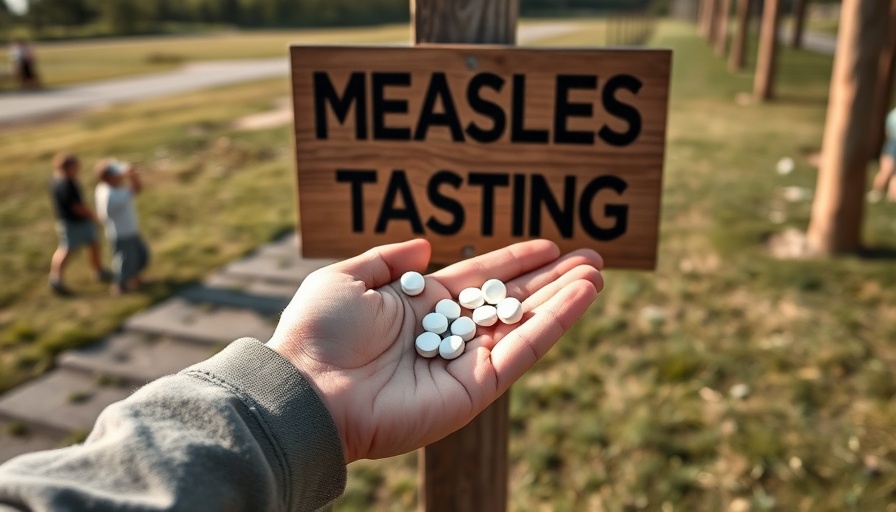
Understanding the Measles Outbreak: A National Health Concern
In recent years, the United States has witnessed a concerning resurgence in measles cases, a disease once nearly eradicated due to effective vaccination programs. As reported, over 160 cases of measles have emerged across nine states, significantly linked to a severe outbreak in Texas. The public health implications are staggering, especially as we consider the virus's highly contagious nature, with a staggering attack rate of 90% among unvaccinated individuals.
The Crucial Role of Vaccination
Measles is a vaccine-preventable illness, primarily managed through the Measles, Mumps, and Rubella (MMR) vaccine. Both the Centers for Disease Control and Prevention (CDC) and health experts advocate for the vaccine, emphasizing that it offers long-term immunity for most individuals who have received it in childhood. Unfortunately, misinformation and declining vaccination rates have contributed to this outbreak, reaffirming the need for ongoing public health education.
Measles and Immunocompromised Individuals
For those with weakened immune systems, such as cancer patients, the stakes are even higher. Measles can lead to severe complications, including pneumonia and encephalitis. Patients undergoing treatment often can't receive the MMR vaccine, leaving them particularly vulnerable. Therefore, it becomes imperative for families and caregivers to ensure they are vaccinated to protect these vulnerable individuals.
Symptoms and Complications: What to Watch For
Measles presents with classic symptoms such as high fever, cough, runny nose, and a characteristic rash. However, in immunocompromised individuals, symptoms may manifest atypically, making early diagnosis challenging. Complications can linger long after recovery, highlighting the need for vigilance among caregivers and families of affected individuals.
Moving Forward: Strategies for Safety
To mitigate risks, cancer patients and their families should employ several strategies: stay informed about local outbreaks, maintain regular communication with healthcare teams, and prioritize hygiene by frequently washing hands. Moreover, it’s advisable to avoid areas with known measles outbreaks, which can pose significant risks to their health.
Community Responsibility: A Call to Action for Vaccination
The recent outbreaks illustrate a pressing public health dilemma. Vaccination is not just an individual responsibility but a communal one. By ensuring wide vaccine coverage, we protect not only ourselves but also those who cannot be vaccinated. This is particularly critical for individuals vulnerable to complications from measles, underscoring that the health choices of one can directly impact the health of many.
Conclusion: Safeguarding Our Communities
The resurgence of measles in the U.S. serves as a stark reminder of the importance of vaccinations and public health awareness. By fostering informed discussions about immunization and addressing misconceptions surrounding vaccines, communities can promote robust health outcomes and guard against preventable diseases. It is more crucial than ever to ensure we keep each other safe and healthy. For more information on measles and how you can protect your loved ones, visit local health department sites or the CDC's updates.
 Add Element
Add Element  Add Row
Add Row 



Write A Comment